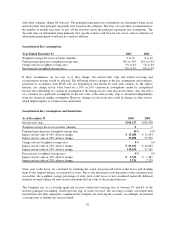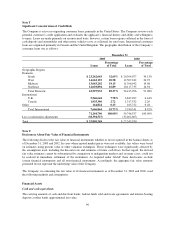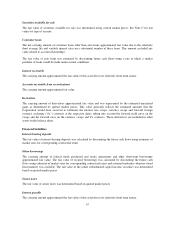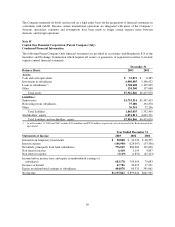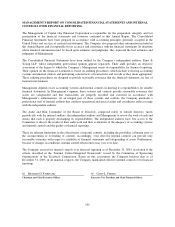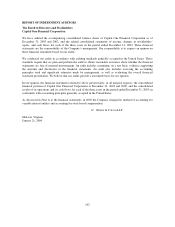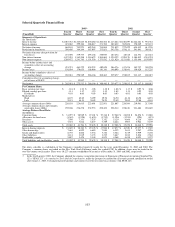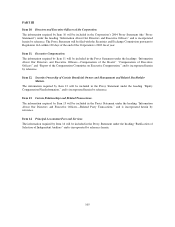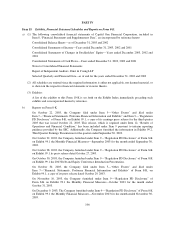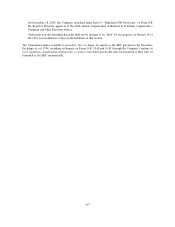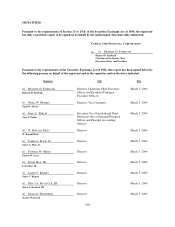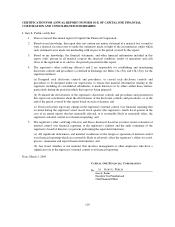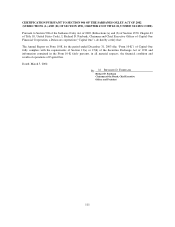Capital One 2003 Annual Report Download - page 119
Download and view the complete annual report
Please find page 119 of the 2003 Capital One annual report below. You can navigate through the pages in the report by either clicking on the pages listed below, or by using the keyword search tool below to find specific information within the annual report.
MANAGEMENT’S REPORT ON CONSOLIDATED FINANCIAL STATEMENTS AND INTERNAL
CONTROLS OVER FINANCIAL REPORTING
The Management of Capital One Financial Corporation is responsible for the preparation, integrity and fair
presentation of the financial statements and footnotes contained in this Annual Report. The Consolidated
Financial Statements have been prepared in accordance with accounting principles generally accepted in the
United States and are free of material misstatement. The Company also prepared other information included in
this Annual Report and is responsible for its accuracy and consistency with the financial statements. In situations
where financial information must be based upon estimates and judgments, they represent the best estimates and
judgments of Management.
The Consolidated Financial Statements have been audited by the Company’s independent auditors, Ernst &
Young LLP, whose independent professional opinion appears separately. Their audit provides an objective
assessment of the degree to which the Company’s Management meets its responsibility for financial reporting.
Their opinion on the financial statements is based on auditing procedures, which include reviewing accounting
systems and internal controls and performing selected tests of transactions and records as they deem appropriate.
These auditing procedures are designed to provide reasonable assurance that the financial statements are free of
material misstatement.
Management depends on its accounting systems and internal controls in meeting its responsibilities for reliable
financial statements. In Management’s opinion, these systems and controls provide reasonable assurance that
assets are safeguarded and that transactions are properly recorded and executed in accordance with
Management’s authorizations. As an integral part of these systems and controls, the Company maintains a
professional staff of internal auditors that conducts operational and special audits and coordinates audit coverage
with the independent auditors.
The Audit and Risk Committee of the Board of Directors, composed solely of outside directors, meets
periodically with the internal auditors, the independent auditors and Management to review the work of each and
ensure that each is properly discharging its responsibilities. The independent auditors have free access to the
Committee to discuss the results of their audit work and their evaluations of the adequacy of accounting systems
and internal controls and the quality of financial reporting.
There are inherent limitations in the effectiveness of internal controls, including the possibility of human error or
the circumvention or overriding of controls. Accordingly, even effective internal controls can provide only
reasonable assurance with respect to reliability of financial statements and safeguarding of assets. Furthermore,
because of changes in conditions, internal control effectiveness may vary over time.
The Company assessed its internal controls over financial reporting as of December 31, 2003, in relation to the
criteria described in the “Internal Control-Integrated Framework” issued by the Committee of Sponsoring
Organizations of the Treadway Commission. Based on this assessment, the Company believes that as of
December 31, 2003, in all material respects, the Company maintained effective internal controls over financial
reporting.
/s/ R
ICHARD
D. F
AIRBANK
/s/ G
ARY
L. P
ERLIN
Chairman and Chief Executive Officer Executive Vice President and Chief Financial Officer
101



